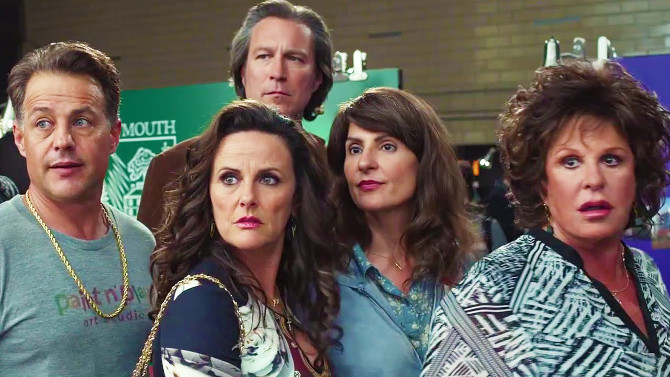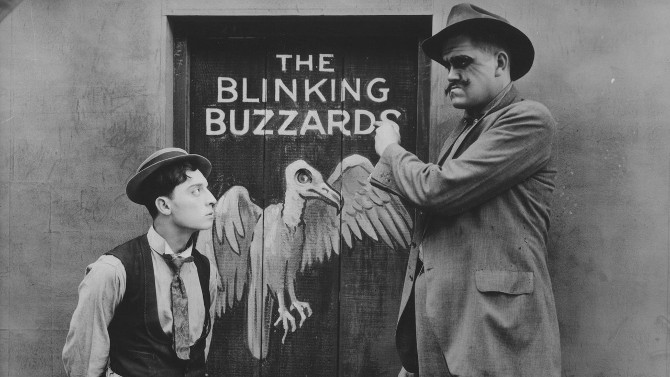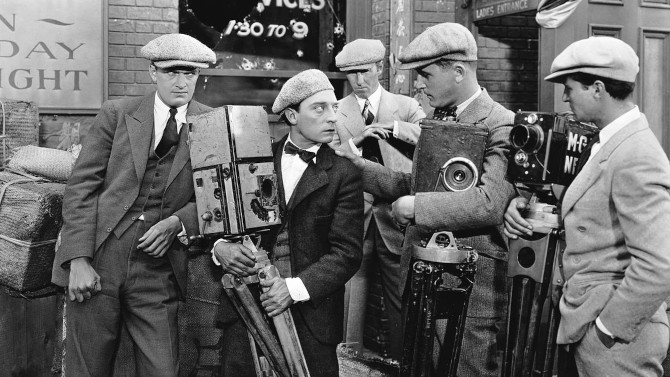
Plights, Camera, Action
Often deemed to be the last classic film made by the great Buster Keaton, The Cameraman (1928) was the final time the silent legend would have anything close to full creative control over one of his own features... as he folded his independent studio to sign with Metro-Goldwyn-Mayer (MGM) – who promptly made him their third highest paid star. Though his future would soon turn very bleak, this first film with the new studio was his own idea.
-
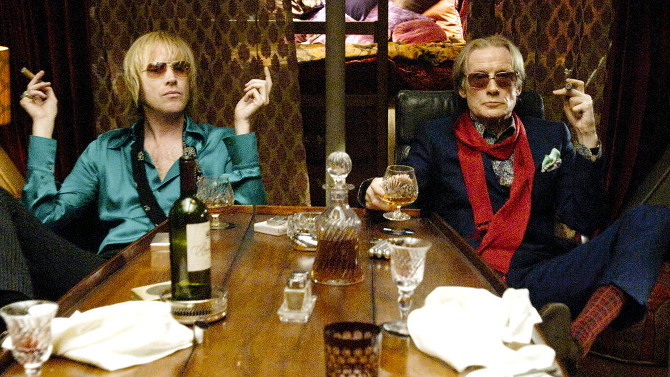
Rock the Boat
Pirate RadioJuly 31, 2016If you’re into classic rock music, there may be no better film to watch than Richard Curtis’ 2009 motion picture Pirate Radio (sometimes referred to as The Boat That Rocked), as it provides the viewer with an epic soundtrack as well as a rich retrospective look back at the chaotic era that was the 1960s. Loosely based on a true story, Curtis (who also wrote the screenplay) tells the tale of a group of rogue DJs who anchor in the waters off of Britain (in the North Sea, to be exact), playing rock `n roll music to the masses, much to the chagrin of the classical music loving establishment – wonderfully illustrating the turbulent clashes of chaos found in the 1960s.
-
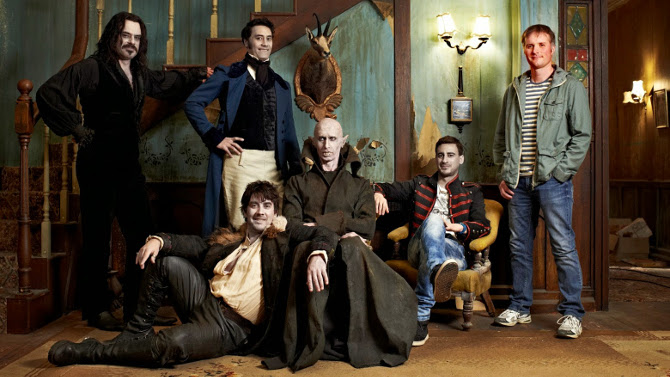
A Bloody Good Time
What We Do in the ShadowsJuly 29, 2016The vampire has become over-used in recent years, making the market feel over-saturated. It has become increasingly difficult to find a way to depict something creative and new within the sub-genre, while not departing from all that is intriguing about the creature. One film that expertly pays tribute to ‘creatures of the night’ while concocting a unique and comedic vision is the 2014 mockumentary What We Do in the Shadows.
-
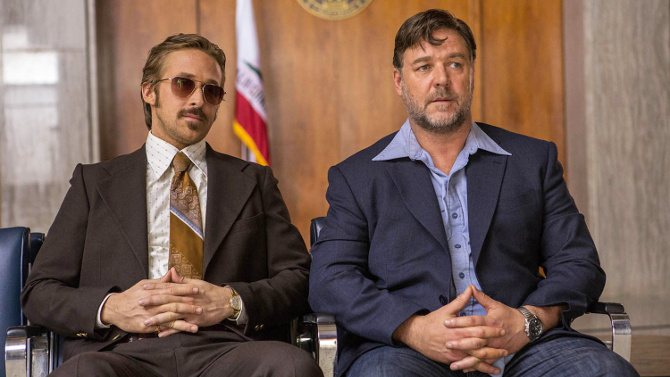
Nice Guys Finish First
The Nice GuysMay 29, 2016Putting Ryan Gosling and Russell Crowe together as an action comedy duo seems like a rather unorthodox and risky venture. Both have been able to add touches of humour to certain roles in their impressive resumes, yet they have generally been considered dramatic actors – with neither having truly had the chance to test their jocular delivery. So, it is perhaps slightly surprising that the duo have excellent comedic chemistry and timing in their new film The Nice Guys.
-
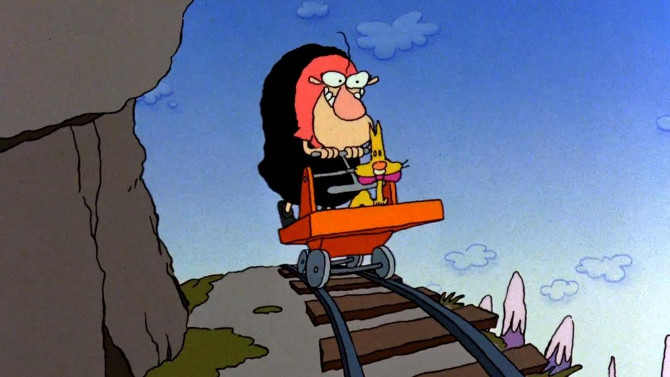
The Cat Came Back
The Cat Came BackMay 9, 2016As a child, I was enamoured with a kooky Canadian animated short film called The Cat Came Back. Available on VHS (for those of you too young to remember what this is, ask your parents) at my local library, I would take it out every time I entered the historic building. It is likely that I played a huge part in wearing down that cassette tape. Thanks to the National Film Board of Canada, who produced the flick, it is available for free on their website.
-
Bigger, Fatter, and Oh So Greek
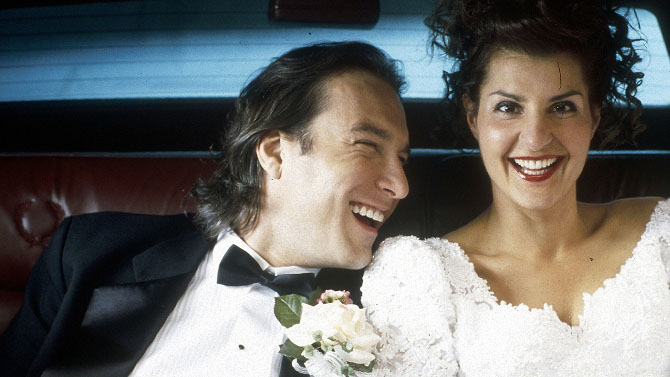 My Big Fat Greek WeddingMy Big Fat Greek Wedding 2April 19, 2016
My Big Fat Greek WeddingMy Big Fat Greek Wedding 2April 19, 2016Back in 2002, My Big Fat Greek Wedding hit the world by storm. . . and when all was said and done, it became the top grossing romantic comedy of all-time (without ever being number one at the box office). It told the story of an intensely smothering yet loving Greek family living in Chicago by way of our lead and voice over narrator Toula Portokalos (Nia Vardalos – who wrote the story and got an Academy Award nomination for her effort). The plain and slightly nerdy woman, who works at her parents’ restaurant and cannot seem to find love, sets us up for a feel good story that combines the concept of finding love in the most unexpected places with a positive spin on Greek-American stereotypes that hit right on the mark.
-
Two Timeless Classics from Buster Keaton
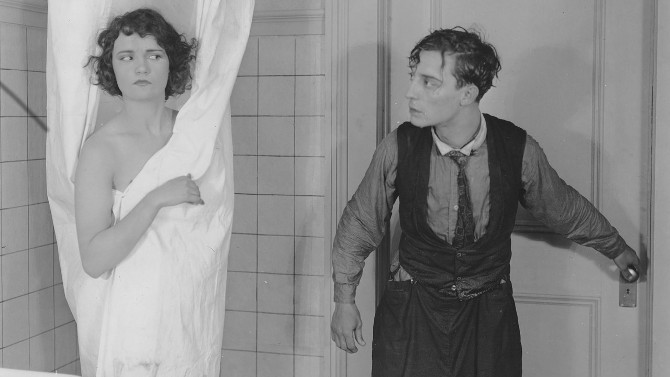 One WeekThe 'High Sign'April 15, 2016
One WeekThe 'High Sign'April 15, 2016The triumvirate of silent era comedians, in no particular order, are as follows: the ever famous Charlie Chaplin, the oft forgotten Harold Lloyd and ‘The Great Stone Face’ Buster Keaton. As I have already reviewed a film of Lloyd’s and several of Chaplin’s, I thought it would be a good time to visit some of the work of Keaton’s acrobatic and stoic-faced silent era screen personas. To change things up a tad, I also thought it would be fun to look to some of his earlier short films instead of his more iconic full length features like The General.

